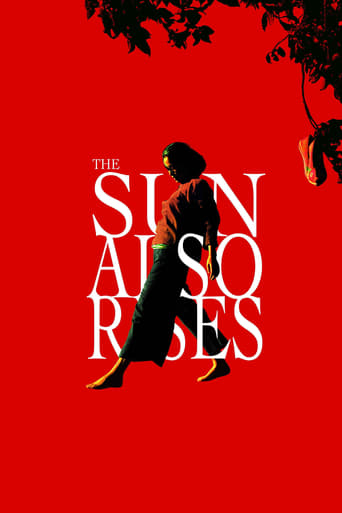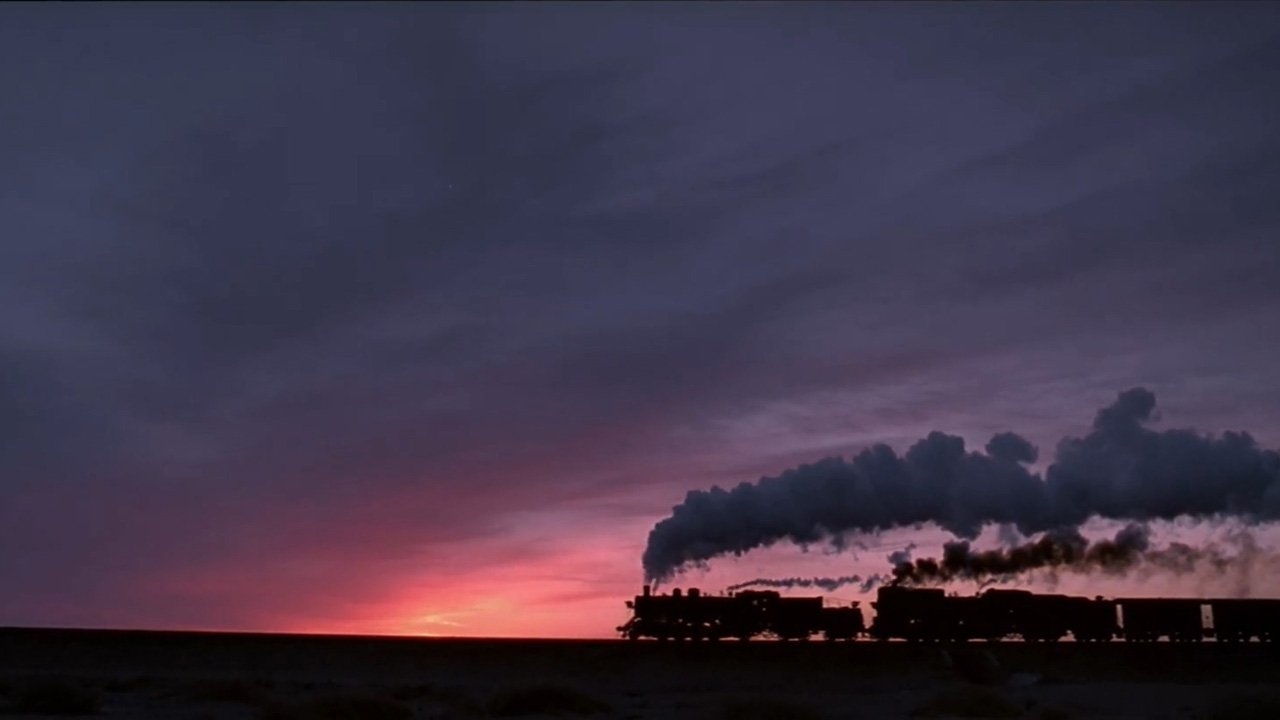Andyssoohigh
I won't pretend to understand everything or even half of what went on in this film. I gave up pretty quickly into the film, however, I wanted to keep on watching and the film kept me enticed mainly for that reason. Sometimes it feels good not to understand? Just to watch for the beauty? The Magic? The craziness? The unknowingness of it all. I really found this film like I was wandering through a modern art gallery but so much better. It was painted beautifully, the setting and the colours; my mouth watered and i felt like i was eating a six course meal.The words also seemed to be quite poetically abstract to fit in with it all. A dream like film.
roytien2006
Jiang Wen's "In the heat of the sun" is a master piece and arguably the best Chinese film ever made. His second work "Gui Zi Lai Le" is controversial in its achievement but certainly fun to watch. The Chinese film industry has so much to expect from him after those crappy 'big productions' such as "Huang jin jia", "Banquet" and alike in recent years. But Jian Wen has failed people's expectation with this one. I don't care how high the technical achievement performed in this film. If a story told can not be comprehended by its dedicated viewers, it's not worthwhile watching. I always have an interest in decoding but do not feel like listening to other people's murmur - Jiang Wen's or anyone else'. Unfortunately, it has thus become a two-hour waste of my life. On the acting part, the talented Anthony Wong wasted his talent entirely in the film. Joan Chen's good performance was ruined by the ridiculous plot. As for the competition with "Lust; Caution" in Venice........ oh, come on!
Bear YIU
The film is more a self-actualization of Director Jiang himself on his aspirations and far-sightedness than a readily decipherable reading for the audience. Alongside the 4 episodes respectively under the narrative motifs of insanity, love, gunman and dream, the quadruple-segmented parody in a non-chronological structure embeds in its inner core, quite implicitly, a philosophy of karma, cycling, reborn, rejuvenation and blessings. Structurally, events in the last episode (dream) precede those in the first episode (insanity) in temporal dimension but is narrated in a flashback. The interrelatedness between the first episode (insanity)and the third (gunman) as well as the sequential arrangement of the second episode (love) and the third (gunman) provides a bridge that completes the causality in both temporal and spatial dimensions of the story. The last episode (dream), a flashback, closes most gaps, bestowing on the audience a residual brain working activity on leaving the cinema.The wide spectrum of the director's meditation of the story does not call for a preferred reading on the part of the audience. Instead, it leaves ample rooms for decoding and boundless interpretation. Insanity rides through the entire story in various degrees and in variant forms: insanity reigns in the insanity episode; it then tunes down itself as an over-reaction in the love episode; it transforms itself into an extreme sentiment and lust in the gunman episode; it becomes a possible nirvana (expressed in an aberrant gesture of the character), under a rising sun, on the next generation in the dream episode.Jiang establishes love as another common narrative theme and the act of running as visual motif in the four episodes. Love sways between parental care and lovers' romance in the sequences. The wide geographical coverage in the story and the western-styled gunman perhaps are projections of the grandiose and ostensible aspirations of the director.Under fast pacing, fast cutting, elliptical narrative, a deluge of film language and cinematographic techniques, fluidity in temporal and spatial orientations and with abrupt slapsticks in loud volume (ambient sounds), the film presents with comic effects and titillating musical acoustics a contrivance from an essentially intrinsic perspective that swings between perceptibility and imperceptibility to practical decoders.
pvernezze
The movie basically revolves around two interconnecting stories. In the first story, the mother of an 18 year old boy in the countryside of revolutionary China 1976 begins acting strangely once she falls out of a tree trying to retrieve a pair of her shoes that a mysteriously appearing bird, which was repeating "I know, I know, I know," had stolen. In the second story a teacher at a university in Shanghai (same time, 1976) is falsely accused of groping a female doctor at a film (where he is chased down and beaten by a crowd). The final segment of the movie connects the two tales.I left the theater with several plot questions unanswered and was glad to find out the Chinese audience I watched it with (in Chengdu, China) were equally as puzzled but just as enraptured with the film. You will definitely leave asking questions that I would assert are not possible to answer from the information provided in the film. But you also soon discover that it is really o.k. and the unanswered questions leave you thinking and talking about the film long after you have seen the movie. The film has a magical quality to it, even though it takes place during that most unmagical of times, the Cultural Revolution, with everything except for one scene at the end being set in 1976. The director, Jiang Wen, has only made three films in 15 years, and this is the only one of his that I have seen. But it definitely makes me want to see his other films.


 AD
AD

